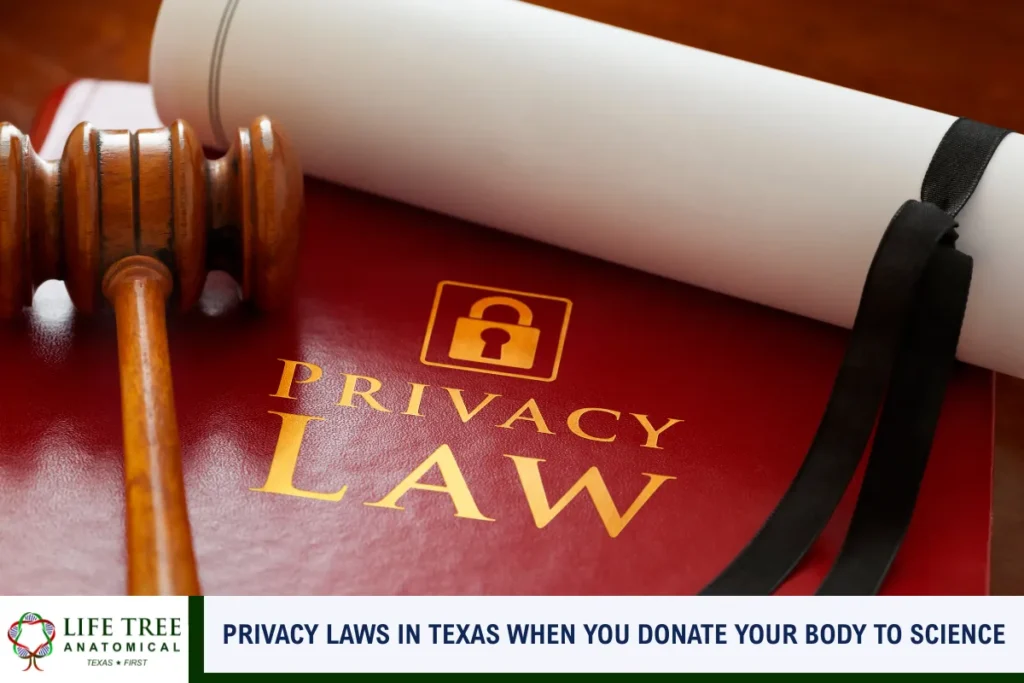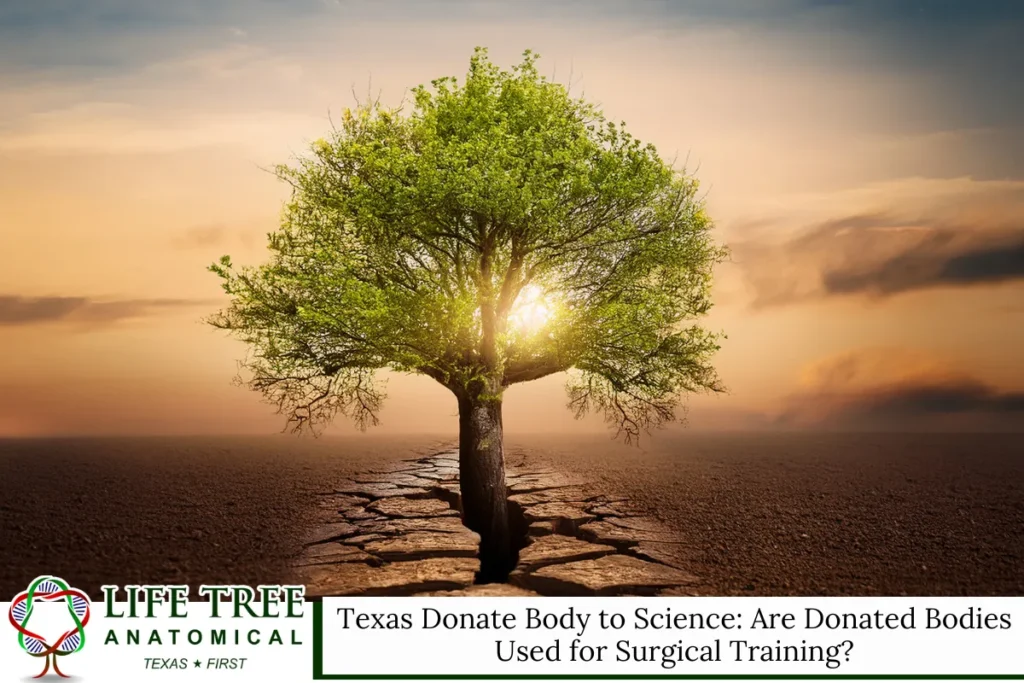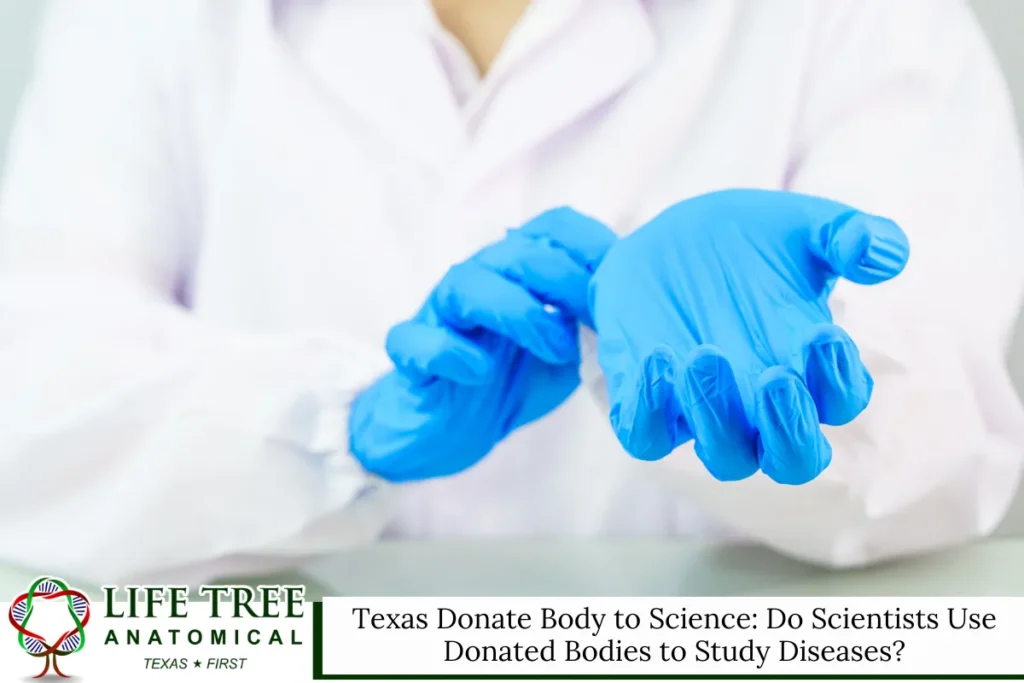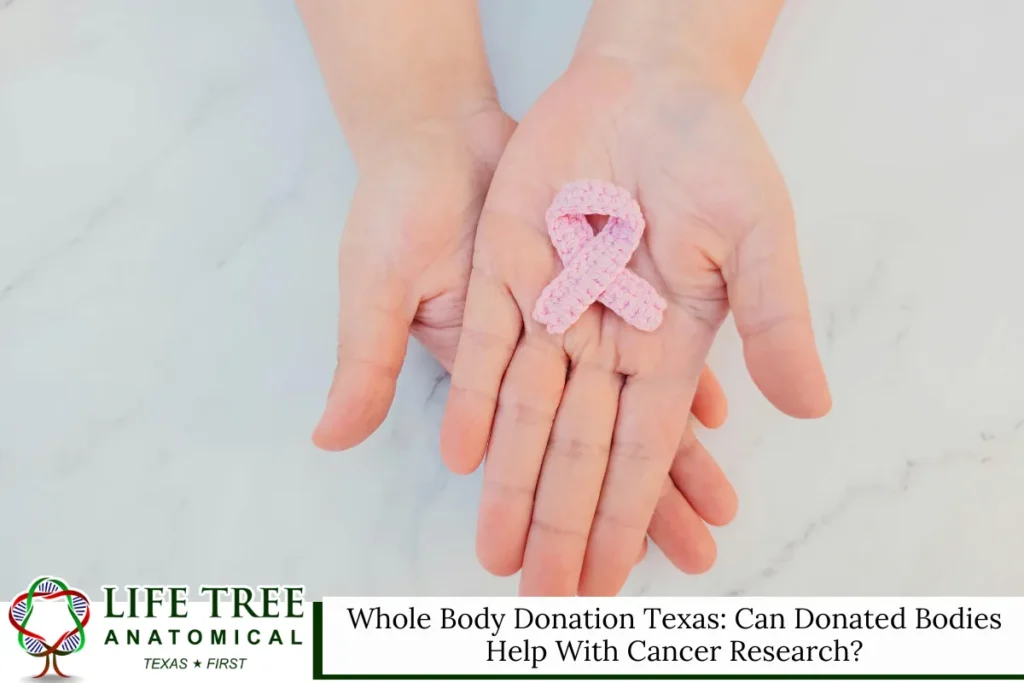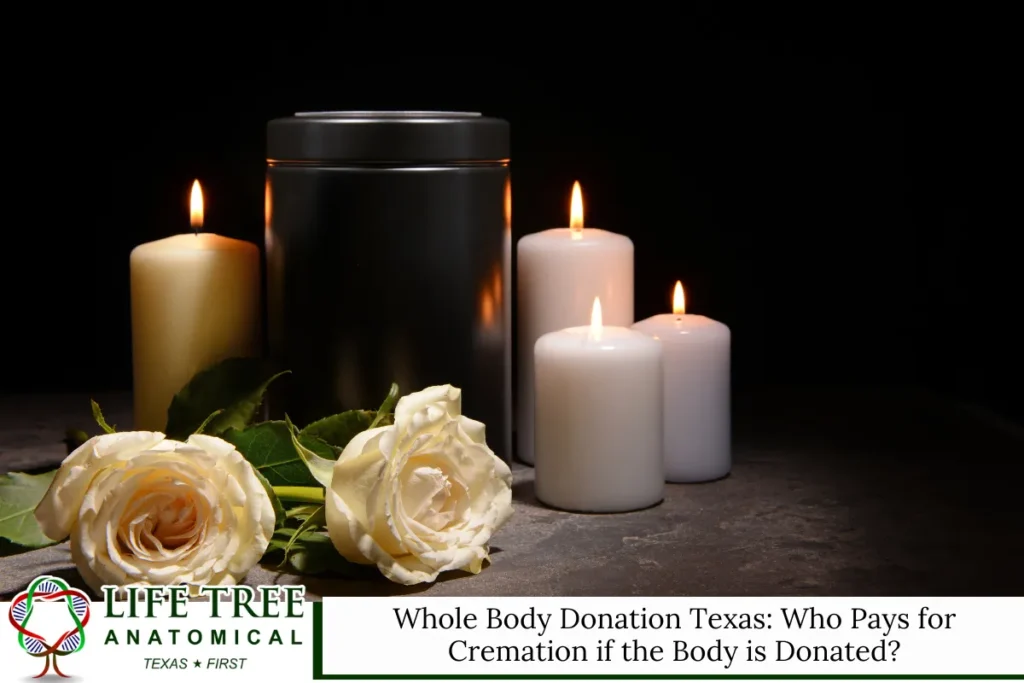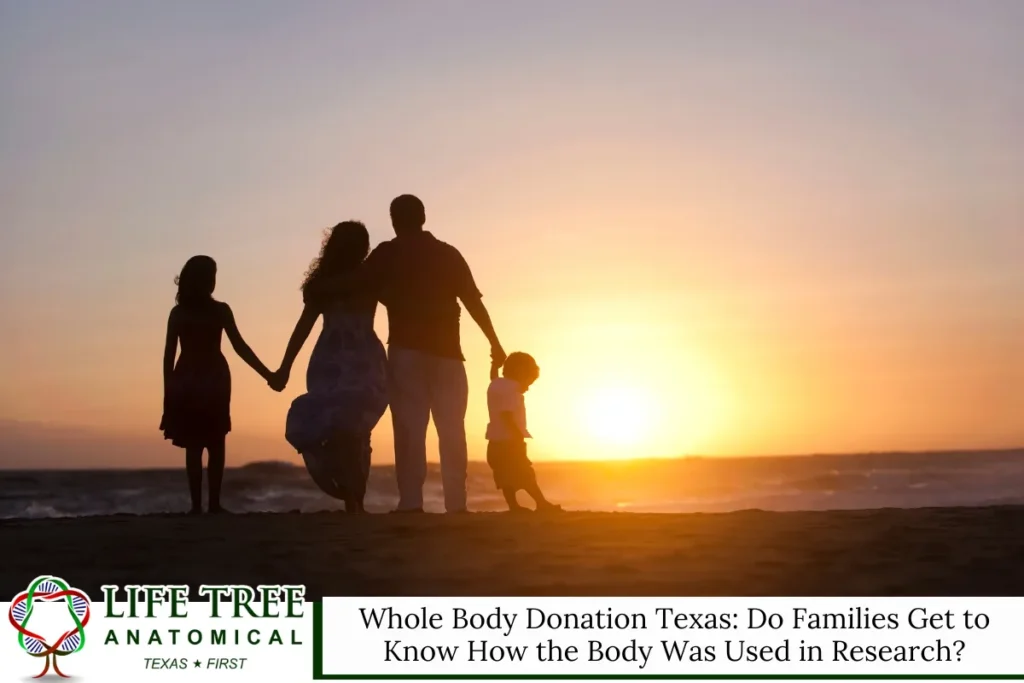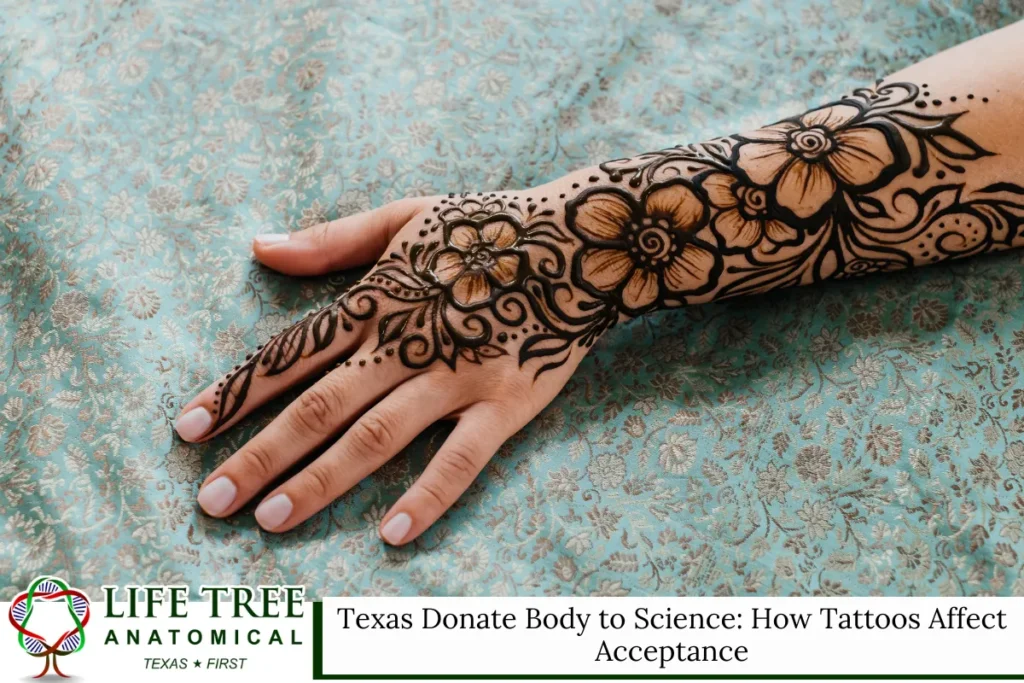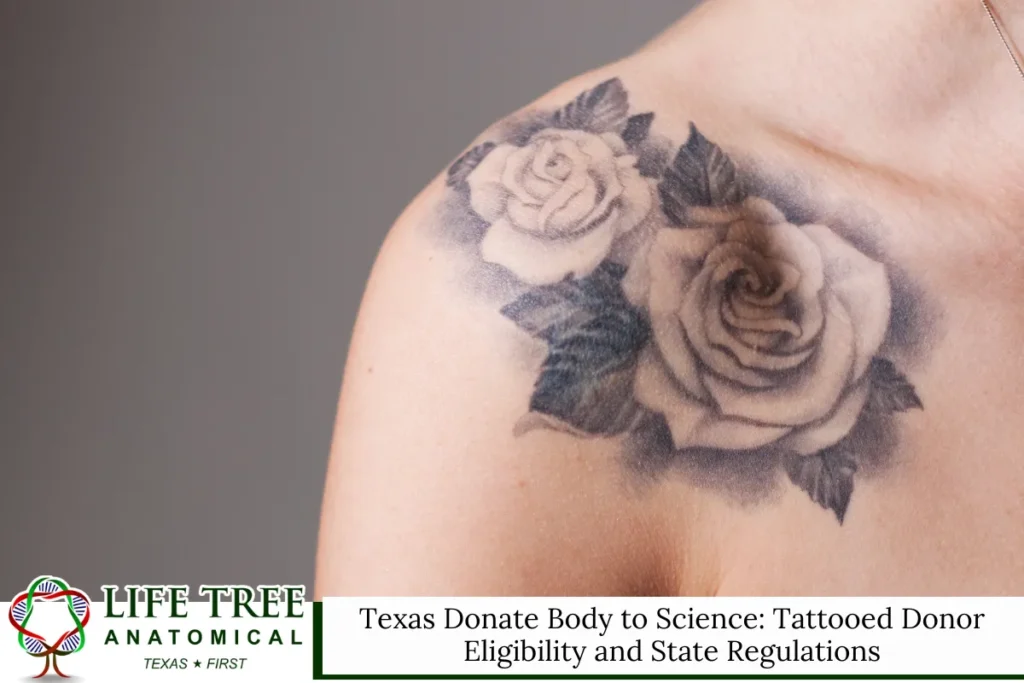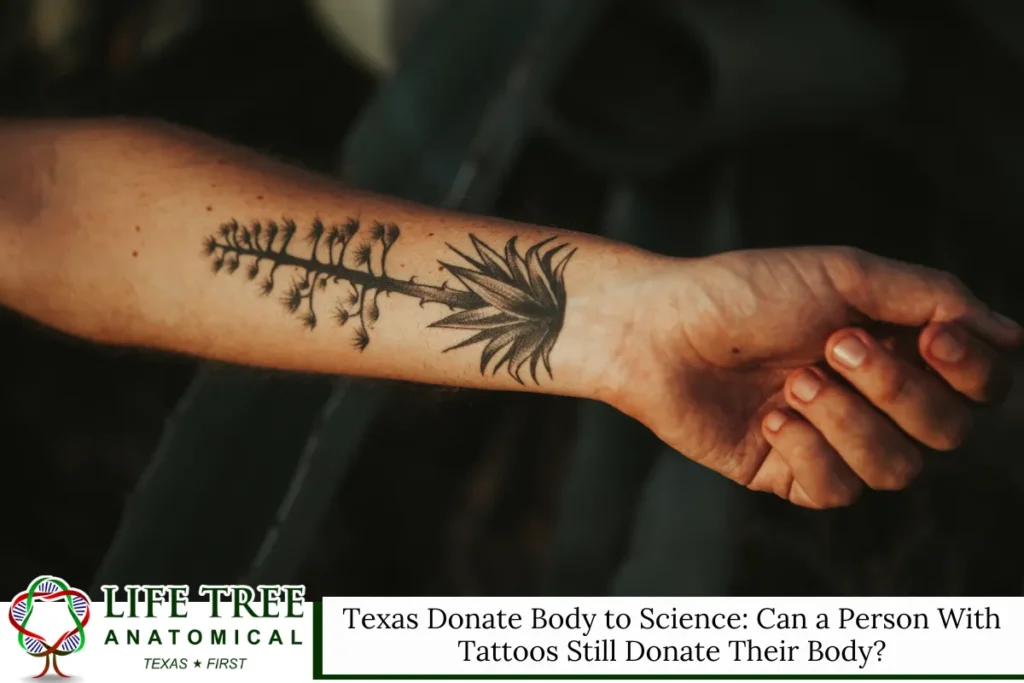If you’ve ever wondered, “what happens when I donate my body to science in Texas?” — you’re not alone. Many Texans considering whole body donation ask important questions about what rights they or their loved ones have, especially regarding privacy. When you donate your body to science through a willed body program in Texas, there are specific legal protections and procedures in place that help guide everything from consent to data security.
This article breaks down Texas privacy laws related to anatomical gifts, giving you a clear picture of how your personal information, your wishes, and your body are handled after death. Whether you’re planning in advance or helping a family member navigate this choice, understanding the laws and expectations helps ensure that your decision is honored respectfully and securely.
How Whole Body Donation Works in Texas
Whole body donation is a legal process that allows a person to gift their remains after death for medical education, scientific research, or forensic study. In Texas, this process is governed by the Texas Health and Safety Code, specifically Chapters 691 and 692A, which cover the management and privacy of anatomical gifts.
Willed body programs are run by universities, research hospitals, and private organizations. They receive, handle, and distribute donated remains for educational or scientific purposes. Common recipients include medical schools, forensic anthropology centers, and surgical training facilities.
Before a person can donate their body, they typically enroll in advance. This includes submitting documents that confirm their intent and consent. However, family members may also be authorized to donate a loved one’s body after death if prior arrangements were not made, depending on legal priority.
Legal Framework Protecting Donors’ Privacy
The Texas Anatomical Gift Act and Confidentiality
The Texas Anatomical Gift Act (Chapter 692A) outlines how body donations must be handled, who has authority to donate, and how records are protected. This act builds on the Uniform Anatomical Gift Act used nationwide, tailoring it for Texas-specific standards.
One important aspect of the law is the regulation of how donor information is collected, stored, and shared. When someone registers to donate their body to science, their identity and details are protected. Only authorized personnel, such as those working for willed body programs or transplant organizations, can access this information. It is not made public and cannot be used for marketing or fundraising.
The Role of the Donate Life Texas Registry
The Donate Life Texas Registry is the state-authorized database for individuals who wish to make an anatomical gift. You can register through the Department of Public Safety (DPS) when applying for or renewing a driver’s license, or directly online.
While this registry is more commonly associated with organ and tissue donation, it plays a role in confirming whether someone has legally agreed to donate their body. All data in the registry is securely stored and can only be used for donation verification. It cannot be sold, rented, or shared with third parties for non-medical purposes.
Who Can Access Information About a Body Donor?

Restrictions on Personal Information
In Texas, privacy laws around body donation are designed to protect both the donor and their surviving family members. Personal information submitted during registration — such as name, address, date of birth, and contact information — is treated as confidential. It is only accessible to those involved in verifying, accepting, and managing the donation.
Information about the donation, such as where the body is sent or how it’s used, is generally not disclosed to the public. In most cases, even detailed results from research or education conducted on the donor’s body are not shared with next of kin, unless specified in the donor’s wishes or required by law.
Family Rights and Consent Hierarchies
Texas law outlines who has the legal authority to make an anatomical gift on behalf of a deceased person. If the person did not make arrangements during their lifetime, the decision can fall to a:
- Legal agent under medical power of attorney
- Spouse
- Adult children
- Parents
- Adult siblings
Each of these individuals may authorize or deny body donation, depending on the circumstances. Once a donation is authorized, the privacy of the donor is protected similarly to those who pre-registered.
Post-Mortem Privacy: What Remains Confidential?
HIPAA and Its Limits After Death
Federal law under HIPAA (Health Insurance Portability and Accountability Act) continues to protect a person’s medical records for 50 years after death. However, HIPAA’s protections do not extend fully to non-clinical data related to body donation.
In Texas, the state’s body donation laws fill this gap by limiting the sharing of donor information and outlining how willed body programs must handle records. These records include consent forms, communications with family, transportation details, and final disposition documentation.
Use of Donated Bodies and Anonymity
Willed body programs in Texas use donated bodies for medical and scientific purposes only. Donors are often kept anonymous during instruction or research, with their names and identifying features removed or protected. Medical students, researchers, and staff are trained to treat donated bodies with respect and professionalism.
While some families may receive general feedback about how the donation helped education or science, specific information is rarely shared, further preserving donor privacy.
After Donation: Cremation, Remains, and Records

What Happens to the Body After Use?
Once the donation process is complete, remains are usually cremated at no cost to the family. Many willed body programs allow the ashes to be returned to the next of kin upon request. Others may arrange a communal burial or scattering, depending on the program’s policies and the donor’s preferences.
Records related to this final stage — including transportation, cremation, and disposition — are securely maintained and not publicly disclosed. Families are given only the information they need for peace of mind or administrative purposes.
Long-Term Storage of Donation Records
Willed body programs are required to maintain accurate records of every donor. These records include signed documents, tracking logs, transportation paperwork, and final disposition certificates. These files are kept in secure, access-controlled environments for the duration required by law and institutional policy.
Institutions may use digital and paper storage systems, both of which must comply with privacy standards and internal reviews. Access to this information is typically limited to authorized program administrators and compliance staff.
Can You Revoke or Change a Body Donation Decision?
Changing Your Mind: Legal Revocation Options
In Texas, anyone who registers to donate their body can revoke or amend that decision at any time before death. You can update your donor registration through the Donate Life Texas website, your local DPS office, or by notifying your chosen willed body program directly in writing.
Once revoked, your information is no longer active in the registry, and institutions must honor your updated wishes. It’s important to communicate changes with your family to prevent any confusion after your passing.
What Happens If Family Disagrees With a Donation?
While the law supports your right to donate your body, disputes may arise if family members object after death. In such cases, Texas law favors the documented wishes of the donor. However, some programs may decline the donation if a serious conflict arises, particularly if it may affect operations or emotional well-being of the family.
Clear communication before death — including written and verbal confirmation — helps prevent disagreements and ensures your final wishes are carried out respectfully.
Privacy Practices of Texas Willed Body Programs
Institutional Policies on Data Security
Each willed body program in Texas — whether at a medical school, university, or private facility — follows strict internal policies for managing donor information. These policies include:
- Use of secure servers and encrypted technology to store digital files
- Restricted access to physical documents using locked file rooms
- Staff training on confidentiality and ethical handling
- Periodic audits to ensure compliance with state law and institutional guidelines
Only designated staff members involved in body donation administration, transportation, and compliance are allowed to access sensitive information. These teams work under clear protocols, ensuring that both living registrants and deceased donors have their privacy respected at every step.
Anonymous Use in Medical Training and Research
To prevent any breach of privacy or dignity, donated bodies are typically identified by a tracking number rather than a name. This anonymization ensures that individuals involved in the educational or scientific process do not have access to personal identifying details.
In medical schools, students and faculty are trained to treat each body with the same respect and confidentiality that would be given to a living patient. Rules are in place to prohibit photography, public discussion of identifiable features, or any misuse of remains.
Some programs even hold ceremonies to honor donors and thank families — a meaningful gesture that underscores the importance of ethical responsibility in whole body donation.
Protecting Yourself from Body Donation Scams
The Importance of Choosing a Licensed Program
In Texas, only institutions approved by the Texas State Anatomical Board or governed by the Texas Health and Safety Code can legally accept whole body donations. Unfortunately, there have been national reports of unlicensed organizations exploiting grieving families or mishandling bodies.
To avoid these risks:
- Verify the program is affiliated with a recognized medical school or university
- Review the program’s consent forms and privacy policy before signing anything
- Avoid any service that charges high upfront “administration” or “transport” fees
- Check whether the organization is registered with the Donate Life Texas Registry
If you are unsure about an organization’s credibility, contact the Texas Funeral Service Commission or the Texas State Anatomical Board for confirmation.
Transparency Requirements for Legal Programs
Licensed willed body programs must follow specific rules related to transparency and documentation. These include:
- Providing donors or next of kin with a clear explanation of the body’s potential uses
- Disclosing whether remains will be returned or buried after use
- Offering written copies of all consent and authorization forms
- Answering questions about privacy, cremation, and final disposition
These programs are subject to inspections, public reporting requirements, and ongoing oversight to protect donors and families. Avoid any group that hesitates to provide detailed answers about these topics.
Planning Ahead for Peace of Mind
Documenting Your Wishes Clearly
If you want to donate your body to science, it’s critical to make your wishes known while you are still alive. This includes:
- Registering officially with a willed body program or the Donate Life Texas Registry
- Telling your family about your decision and providing them with contact information
- Placing documentation with your will or medical directive
- Carrying a donor card in your wallet or listing the donation on your driver’s license
Don’t assume your intentions will be honored unless they’re properly recorded. The clearer your documentation, the easier it will be for your family and the receiving institution to follow through.
Involving Your Family Early
Many families are supportive once they understand the value of body donation — but surprise or confusion after death can lead to emotional stress. Take the time to talk openly with your spouse, children, or other decision-makers about your reasons.
Let them know how your donation will help future doctors, improve medical devices, or advance forensic science. This not only prepares them legally, but also gives them peace of mind when the time comes.
Your Final Act of Service, Handled with Care

Whole body donation is one of the most generous gifts you can make to future generations. Texas laws and institutions have worked hard to ensure this process is handled respectfully, securely, and with your privacy at the forefront.
From strict consent procedures to secure data storage and anonymous use in research, Texas willed body programs operate under clear legal and ethical guidelines. As long as you choose a licensed program, register your wishes properly, and communicate with your loved ones, you can feel confident that your decision will be honored with dignity.
Thinking “Where to Donate My Body to Science?” Contact Life Tree Anatomical – Texas Body Donation

When you’re ready to make a lasting impact, Life Tree Anatomical is here to help you take the next step. We proudly serve the entire state of Texas with a trusted, secure, and compassionate whole body donation program. Whether you’re researching options for yourself or on behalf of a loved one, our team is ready to answer your questions and walk you through the process.
Our program makes it easy to donate your body to science, with simple paperwork, respectful handling, and no cost for donation or cremation.
Call (512) 402-8533 today or fill out our quick contact form to learn how you can make a difference through whole body donation in Texas.
Frequently Asked Questions
1. Can I still have a memorial or celebration of life if I donate my body to science?
Yes. Donating your body to science does not prevent you from having a memorial service. Many families choose to hold a service shortly after death or after the cremated remains are returned. You can plan a service that reflects your life and values, even without a traditional burial.
2. Can I choose which medical facility or research project my body goes to?
Generally, donors cannot select specific recipients, but Life Tree Anatomical ensures that each donation is used for accredited medical research or education. Our program follows strict guidelines to match donations with institutions that align with our standards of ethics and privacy.
3. Are there medical conditions that disqualify someone from whole body donation?
Yes. Certain conditions such as HIV, Hepatitis B/C, or cases involving severe trauma or decomposition may prevent acceptance. However, many chronic illnesses (like cancer or diabetes) do not automatically disqualify you. We evaluate each case individually at time of passing.
4. How long is the body used before cremation and return of remains?
The length of study varies depending on the research or educational need. Typically, donated bodies are used for 6 to 24 months. Once the study is complete, cremated remains can be returned to the family if requested.
5. Does body donation affect life insurance or Social Security death benefits?
No. Donating your body to science does not interfere with life insurance claims or Social Security death benefits. Your next of kin can still apply for these benefits, and since there’s no cost for donation or cremation, it can also reduce end-of-life expenses.
Read What Happens to Personal Records After You Donate Body to Science in Texas?

